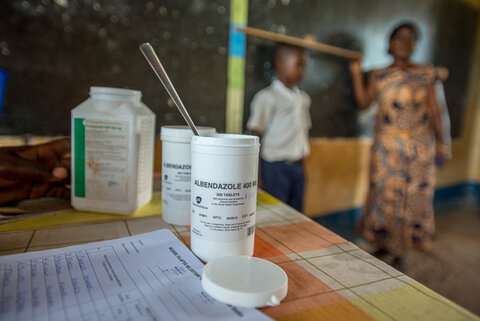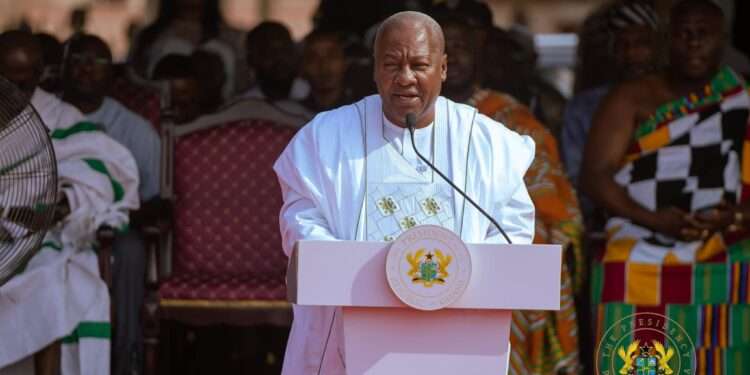In the heart of Africa, where vibrant cultures meet the challenges of healthcare disparities, Neglected Tropical Diseases (NTDs) persist as silent adversaries against progress. These diseases, often overlooked due to their prevalence in impoverished regions, disproportionately affect the most vulnerable populations in Ghana.
Neglected Tropical Diseases (NTDs) are a group of communicable diseases that thrive in tropical and subtropical conditions, impacting over a billion people globally. Ghana, like many countries in Sub-Saharan Africa, bears a significant burden of these diseases.
Despite their profound impact, NTDs often receive less attention and fewer resources compared to other health issues. Achieving equity in NTD management is not just a moral imperative but a practical necessity for the health and development of Ghana. This calls for a concerted effort from all stakeholders, including the government, international organizations, the private sector, and communities.
“This generation has a mandate to eliminate NTDs by 2030. With our concerted and interactive engagements at this advocacy event, we will identify practical, locally-led solutions toward NTD elimination goals. Making efforts against NTDs will contribute to universal health coverage and the Sustainable Development Goals (SDGs) for the Eastern Region, Ghana, and the World at large.”
Rev. Dr. Joyce Aryee, NTD Ambassador
NTDs encompass a group of parasitic and bacterial infections such as malaria, schistosomiasis, lymphatic filariasis, and trachoma, among others. Despite significant advancements in global health, these diseases continue to thrive in areas marked by poverty, inadequate sanitation, and limited access to clean water.
In Ghana, NTDs contribute significantly to morbidity and mortality rates, particularly among children and rural communities. The economic burden is also substantial, hindering development and perpetuating cycles of poverty.
Dr. Winfred K. Ofosu, the Eastern Regional Health Director, in a town hall advocacy meeting organized by the Ghana Health Service, underscored the severity of NTDs, emphasizing their impact on the vulnerable segments of society. These diseases, which include schistosomiasis, soil-transmitted helminthiasis, Buruli ulcer, yaws, leprosy, scabies, and African trypanosomiasis, among others, lead to devastating outcomes such as blindness, lymph node enlargement, and impaired cognitive development.
Dr. Ofosu highlighted the urgent need for collective action to eliminate these diseases due to their significant social and economic burdens.
Need for Equitable NTD Management

Equity in health care means ensuring that everyone has fair opportunities to attain their full health potential, regardless of their social position or other socially determined circumstances. However, the current landscape of NTD management in Ghana reveals stark inequalities.
Addressing NTDs through an equity lens can have transformative effects on Ghanaian society. Improved health outcomes lead to increased productivity and economic growth. Children free from the burden of NTDs can attend school regularly, enhancing educational outcomes and future opportunities. Healthier communities are more resilient and better equipped to participate in national development.
Moreover, equitable NTD management can serve as a model for addressing other health disparities. It demonstrates a commitment to inclusive healthcare, reinforcing the principles of universal health coverage. By focusing on the most marginalized, Ghana can make significant strides towards achieving the Sustainable Development Goals (SDGs), particularly those related to health, poverty reduction, and inequality.
Dr. Winfred K. Ofosu further outlined three primary strategies for combating NTDs: “mass drug administration in all endemic districts annually or bi-annually, morbidity management, and health education within affected communities.” He again noted the critical role of these interventions in reducing the prevalence of NTDs and improving the quality of life for those affected.
Role of Stakeholders
The Ghanaian government plays a crucial role in setting the agenda for NTD control and elimination. This involves integrating NTD programs into the national health system, ensuring sustained funding, and fostering intersectoral collaboration. Policies should prioritize the provision of essential services to the most affected regions and support research and development for better diagnostics, treatments, and preventive measures.
Moreover, Bodies such as the World Health Organization (WHO) and the United Nations play a pivotal role in providing technical support, funding, and advocacy. These organizations can facilitate knowledge transfer, support capacity building, and help align national efforts with global NTD goals. Their involvement ensures that Ghana can leverage international best practices and resources in its fight against NTDs.
Despite progress, challenges remain, including inadequate funding, security concerns during field operations, and competition with other community-based initiatives. Mr. Joseph Opare, Programme Manager of the Neglected Tropical Diseases Programme, called upon the public to seek immediate medical attention for any unusual symptoms, stressing the importance of early detection and treatment.
Additionally, Dr. John Ekow Otoo, Deputy Director of Public Health, Eastern Region, shared insights into the region’s efforts, including NTD surveillance, support for NGOs, and training on contact tracing. He reported encouraging statistics on leprosy cases, with successful treatments and no new child cases, deaths, or disabilities.
Looking ahead, the focus will be on data validation post-Mass Drug Administration and ensuring accurate case entry into the District Health Information Management System.
The fight against NTDs in Ghana requires a multifaceted and inclusive approach. Equity must be at the heart of all interventions, ensuring that no one is left behind. By leveraging the strengths of all stakeholders – from government and international organizations to the private sector and communities – Ghana can overcome the challenges posed by NTDs.
This collaborative effort will not only improve health outcomes but also promote social justice and economic development, paving the way for a healthier, more equitable future for all Ghanaians.
READ ALSO: Africa Energy Bank Set to Launch by Third Quarter of 2024





















